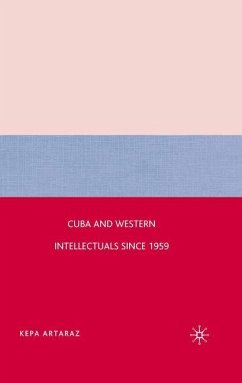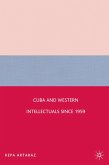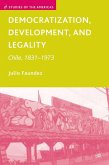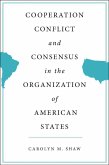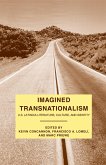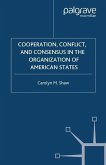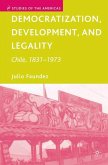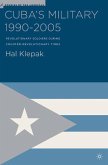This timely book presents a history of the relationship between the Cuban Revolution and intellectuals and activists in France, Britain and the United States, exploring the 'complete cycle' in this relationship and using it to examine the future of Cuba's symbolic status among intellectuals and activists in the West.
"This fascinating and important book describes the attitude of western intellectuals towards the Cuban Revolution in the early years after 1959, and examines the way in which many of them participated in Cuba s cultural and political debate. Looking at the intellectual and political climate in France, Britain and the United States at the end of the 1950s, Artaraz explores the important impact made on the (predominantly leftwing) culture of these countries by the interaction of its intellectuals with Cuba. This book examines the debates within the Cuban intellectual community and their identification with intellectual currents abroad. A nuanced and provocative study." - Richard Gott, Honorary Research Fellow at the Institute for the Study of the Americas, University of London
"This excellent book, coming at an opportune moment when the 1960s are being reassessed, brings a welcome new light to bear on the troubled relationship between the heterodox radicalism of the Cuban Revolution and the radicals of the West (inspired in turn by their own idiosyncratic readings of that phenomenon). With great perspicacity, Artaraz gets inside the thinking of all the actors in this relationship and unearths a pattern of thinking that reveals much about the politics of the time." - Antoni Kapcia, Professor of Latin American History and Director of the Centre for Research on Cuba, University of Nottingham
"Artaraz [has] done his analysis with admirable detachment...[he] makes an important and original contribution." - New West Indian Guide
"This excellent book, coming at an opportune moment when the 1960s are being reassessed, brings a welcome new light to bear on the troubled relationship between the heterodox radicalism of the Cuban Revolution and the radicals of the West (inspired in turn by their own idiosyncratic readings of that phenomenon). With great perspicacity, Artaraz gets inside the thinking of all the actors in this relationship and unearths a pattern of thinking that reveals much about the politics of the time." - Antoni Kapcia, Professor of Latin American History and Director of the Centre for Research on Cuba, University of Nottingham
"Artaraz [has] done his analysis with admirable detachment...[he] makes an important and original contribution." - New West Indian Guide

